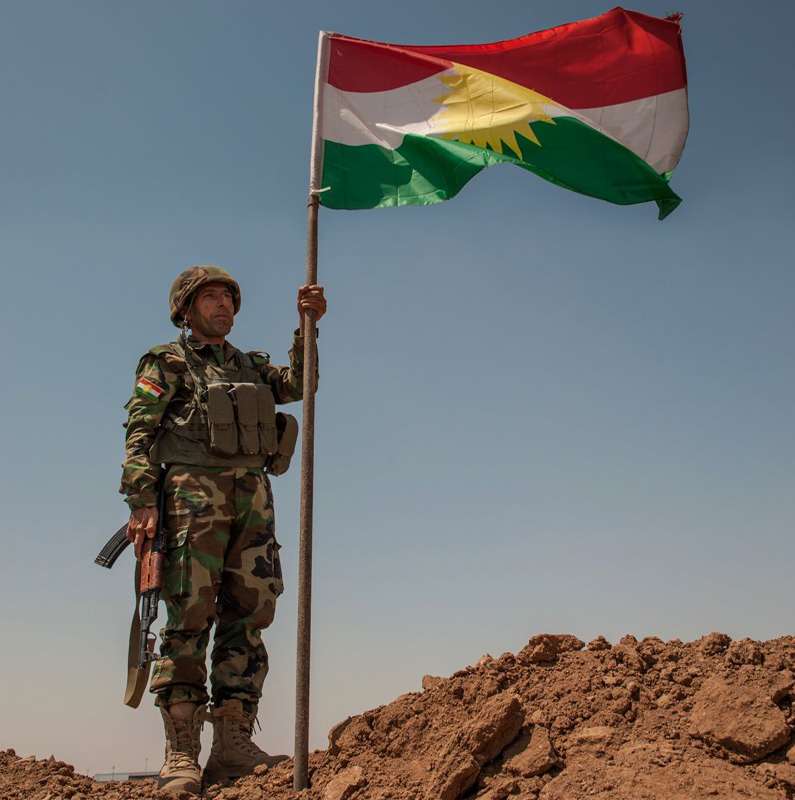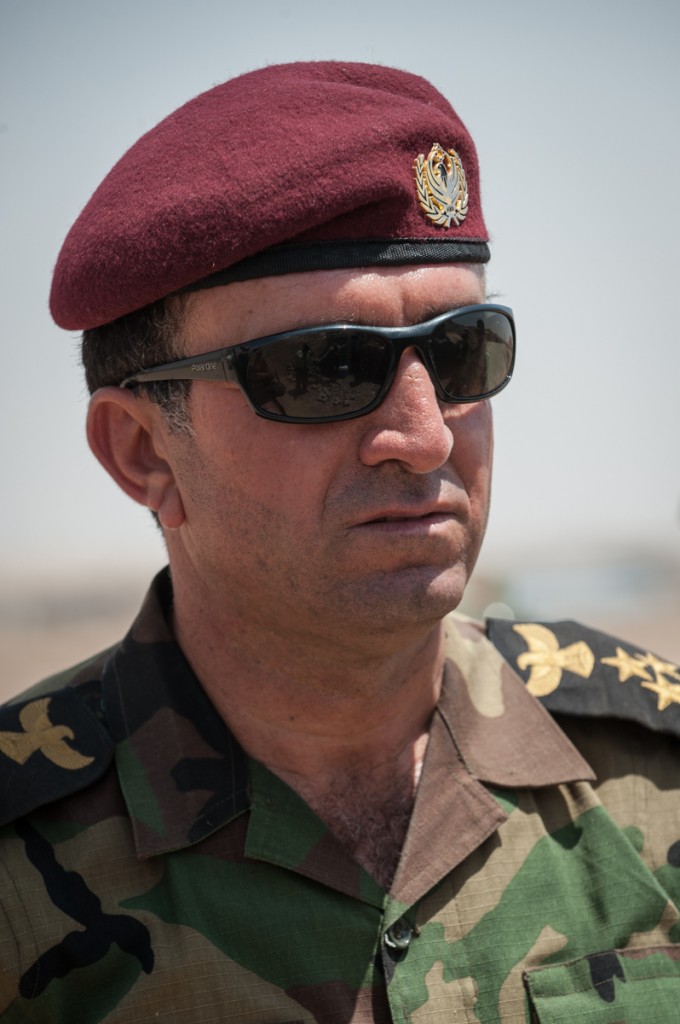We leave Erbil’s security behind us and we drive northwest towards Mosul. The snake-shaped road which is covered with fresh asphalt, betrays nothing of the atrocities that have taken place there.
Our destination is the last outpost of the Peshmerga forces in Mosul. There we will meet with Colonel Iskandar Haji, commander of the Zeravani Battalion, which is perhaps the best trained unit in the now Kurdish army.
Initially we would be welcomed by Commander Hawran who will guide us to the outposts of the road between Mosul and Kalak.
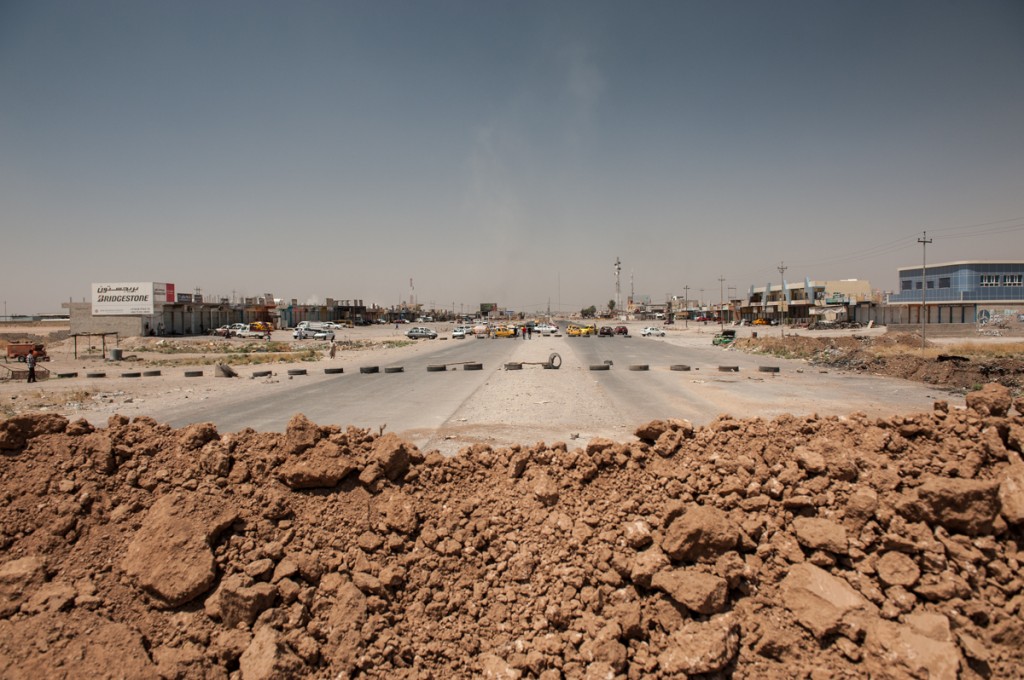
Το τελευταίο φυλάκιο των Κουρδικών δυνάμεων πριν τη Mosul. / The last outpost of Kurdish forces before Mosul.
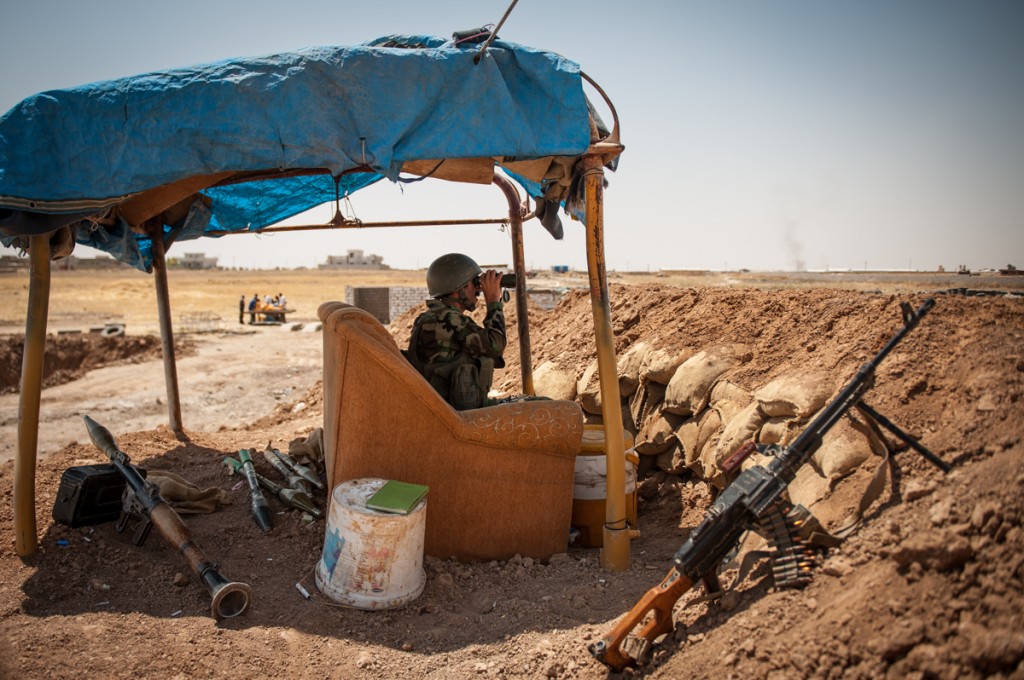
Κούρδος στρατιώτης παρακολουθεί με κιάλια τις θέσεις των σουνιτών του Ισλαμικού Χαλιφάτου στη Mosul. / Kurdish soldier is monitoring with binoculars the positions of Sunni terrorists in Mosul.
Peshmerga fighters are guarding closely the busy road, which is used to transport entire households of those who leave their homes in Mosul, because of ISIS or due to the Iraqi Air Force bombings.
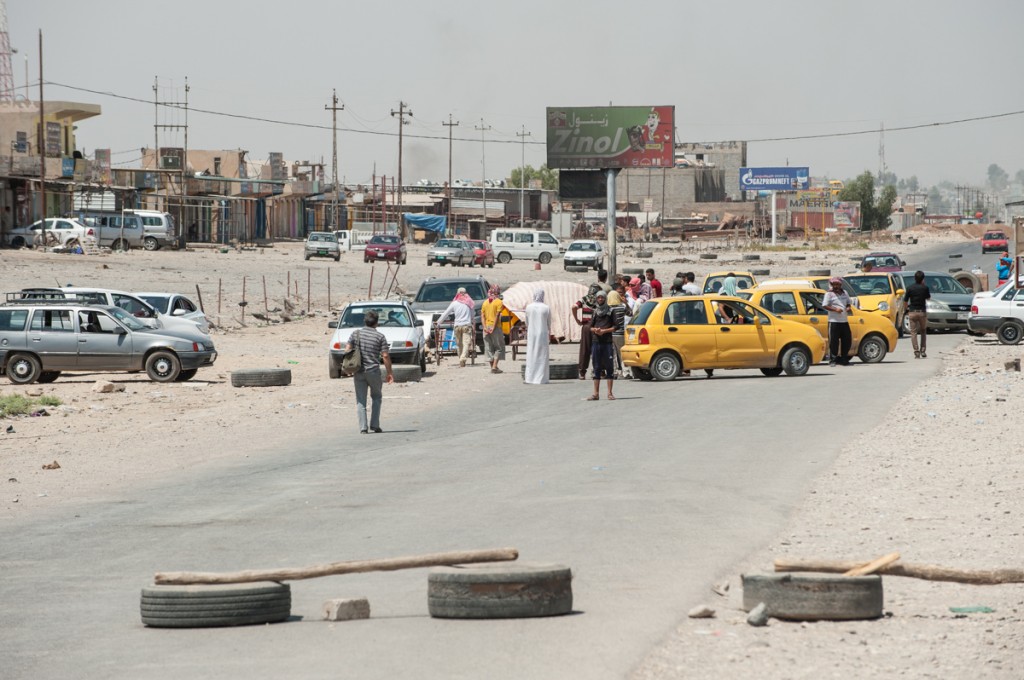
Οδοφράγματα στο δρόμο που έρχεται από την Mosul, από εδώ και πέρα η διέλευση γίνεται μόνο με τα πόδια. / Barricades on the road coming from Mosul, from here on the crossing is made only by foot.
From here on, cars are not allowed and everything is being delivered by carriages or even worse on someone’s shoulders.
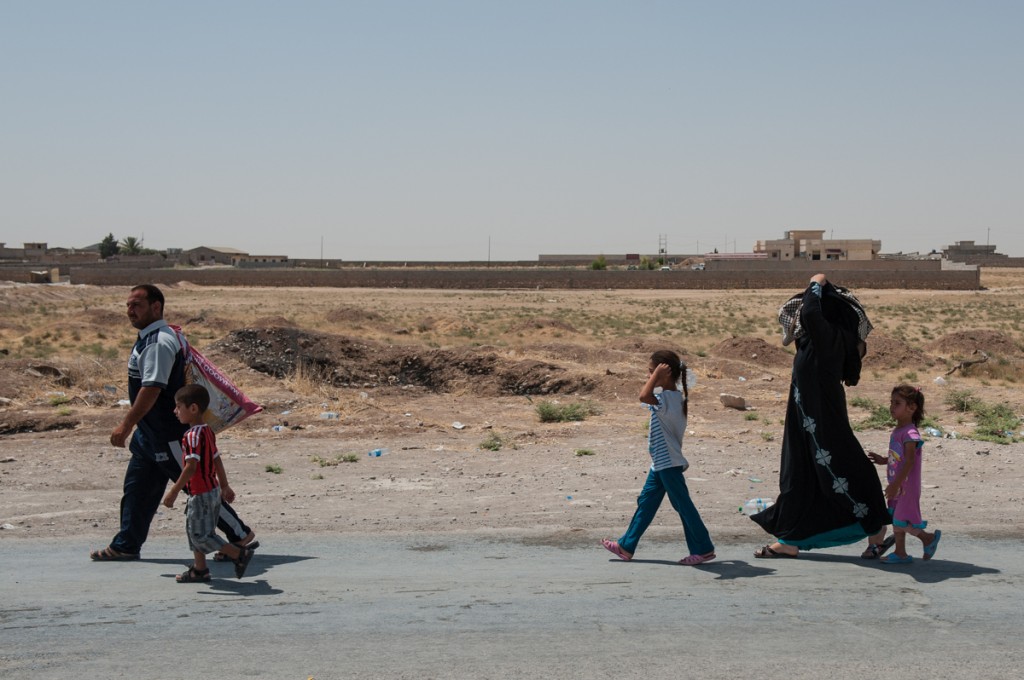
Ιρακινοί αφήνουν τα σπίτια τους στην Mosul και κατευθυνονται προς Erbil με τα πόδια. / Iraqis are leaving their homes in Mosul and head towards Erbil by foot.
The Iraqis that are going through the post seem to accept all these hardships with stoicism, since it is not the first time that they have been driven to become refugees.
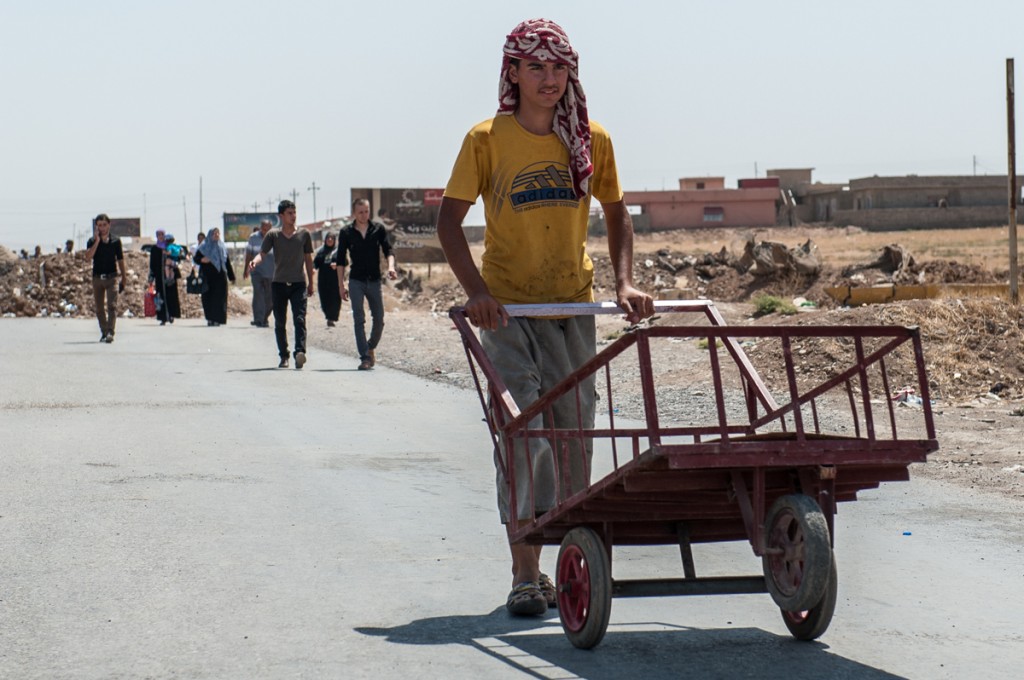
Ιρακινοί αφήνουν τα σπίτια τους στην Mosul και κατευθυνονται προς Erbil με τα πόδια. / Iraqis are leaving their homes in Mosul and head towards Erbil by foot.
Since the without battle fall of Mosul on June 10, to the hands of the Jihadists of the Islamic Caliphate (ISIS), people have been leaving the city, building makeshift dikes along the way to avoid being followed and killed. In these places the Peshmerga men consolidated their defense positions.
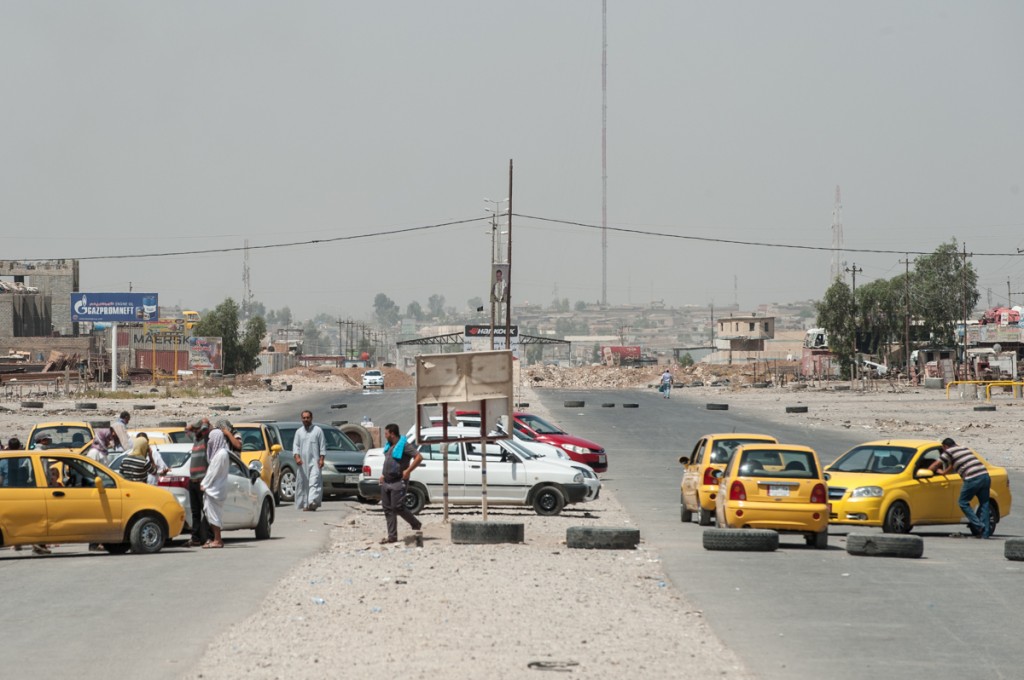
Οδοφράγματα στο δρόμο που έρχεται από την Mosul, από εδώ και πέρα η διέλευση γίνεται μόνο με τα πόδια. / Barricades on the road coming from Mosul, from here on the crossing is made only by foot.
Some argue that the Iraqi army men who disposed of their arms and fled without a fight were Sunnis. But for many this is not true. Prime Minister Al-Maliki did not trust the Sunnis, so the armed forces here were mostly Shiites. The problem with the Iraqi army has been corruption.
“Previously, in 2010, I was also a member of this army and I know what was happening.” one captain says. “The large unit commanders were not satisfied if they did not gouge 300-400 thousand dollars a month. I know that the amount sounds excessive but when the unit consists of thousands of troops when there is the will, there is a way.”
Therefore a corrupt army without moral, how is it possible to fight against the fearless, fierce fighters of Abu Bakr Al Baghdadi. Even when the proportion was 1500 jihadists against 80,000 soldiers and 30,000 police officers, which was overwhelmingly in favor of the Iraqi forces.
“Kurds really need help from the Western world right now, since we are the last bastion of defense, not only in Iraq but the entire world. If the terrorists go through us, who knows where will they stop.”
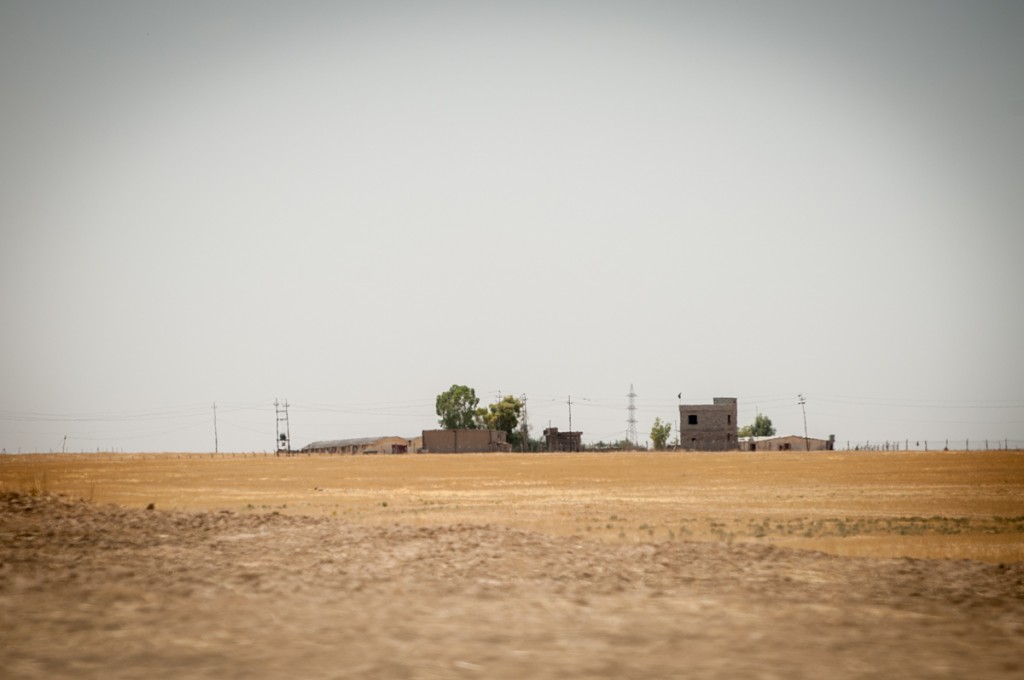
Το φυλάκιο των Σουνιτών τρομοκρατών απέναντι από το χωριό Qaraqosh. / The Sunni terrorists outpost near Qaraqosh village.
“The length of the border for which the Zeravani Battalion is responsible is 40-50 km,” explains Colonel Haji.
The fighting here lasted only four days, from 24 to 28 June when the Ramadan started for Muslims. Since then, the Kurdish forces are trying to keep safe villages such as Qaraqosh (Bakhdida) which are inhabited by many Assyrian Christians who are a common target of the forces of Al Baghdadi.
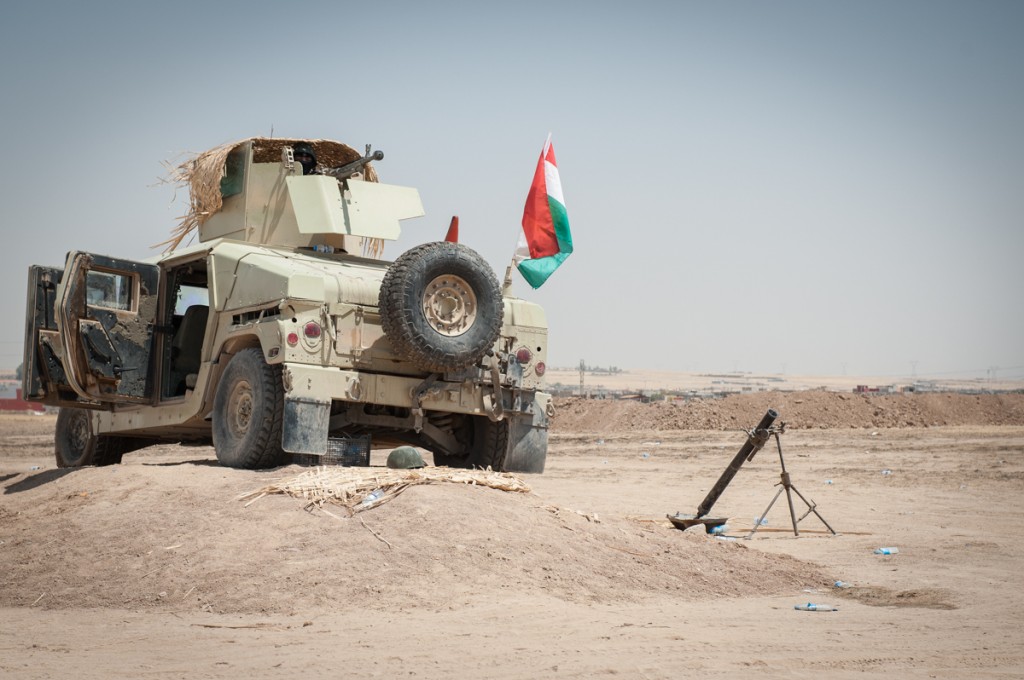
Εκτοξευτήρας όλμων σε φυλάκιο των κουρδικών δυνάμεων κοντά στο χωριό Qaraqosh. / Mortar of the Kurdish forces near the village of Qaraqosh.
There are rumors, that the jihadists have modern technology weapons making it harder for the Peshmerga forces.
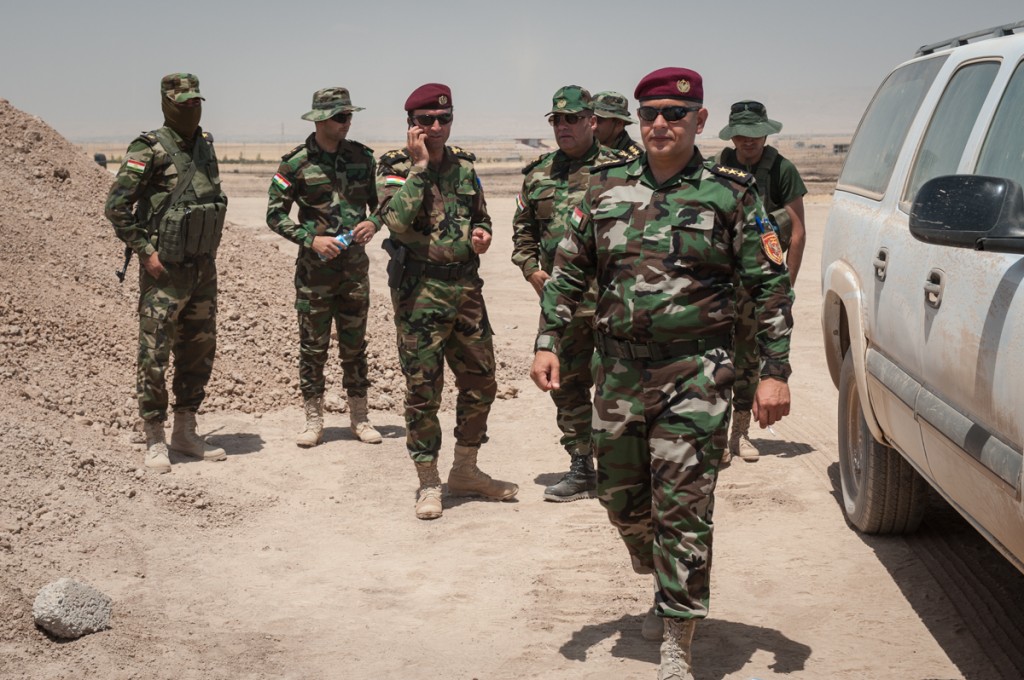
Αξιωματικοί των Peshmerga επιθεωρούν τα χαρακώματα κοντά στο χωριό Qaraqosh. / Peshmerga officers inspect the trenches near the Qaraqosh village.
“It is better to die in the front line rather than go”, says Commander Hawran.
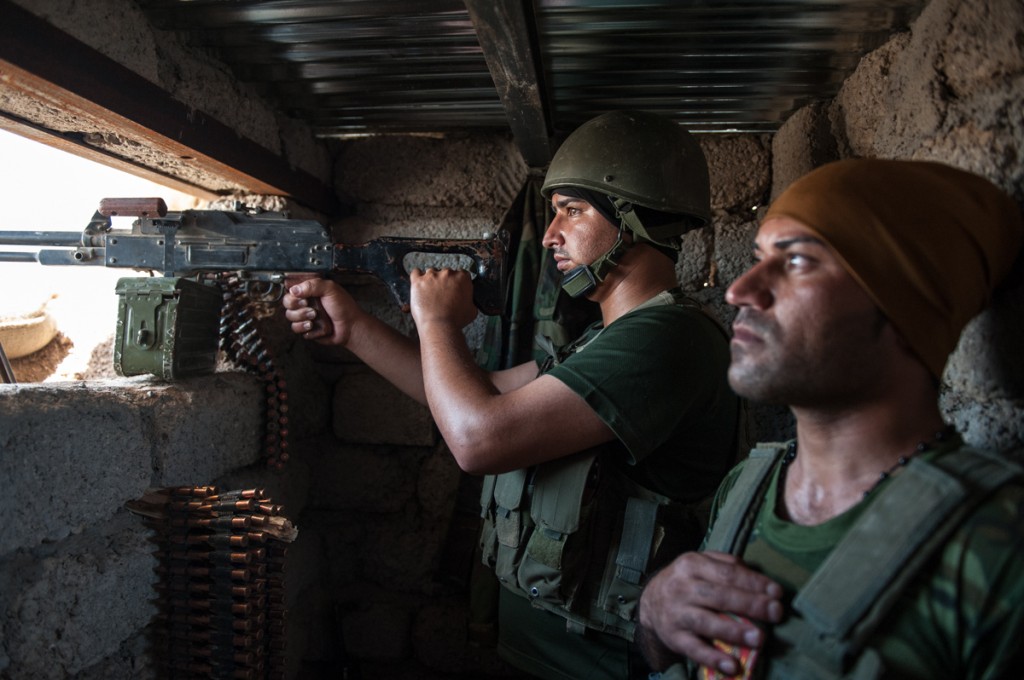
Με το δάχτυλο στην σκανδάλη, πάντα έτοιμοι να αντιμετωπίσουν τους τρομοκράτες του Al Baghdadi. / With the finger on the trigger, always ready to fight Al Baghdadis terrorists.
The greatest threat they face, however, is the fear and panic of the inhabitants since the jihadists are using very clever propaganda tactics. Sometimes, when they catch prisoners, they sit them across from a big boiling pot. They select one and slaughter him. They use a passing truck which blocks the sight of the prisoners and they change the human pieces with goat meat. When the truck is removed and they throw the alleged human meat in pot. When it boils well, they begin eating it, giving the impression to the prisoners that they are cannibals. At night they leave the prisoner cords loose so that they can escape and run to spread everything they saw, spreading panic.
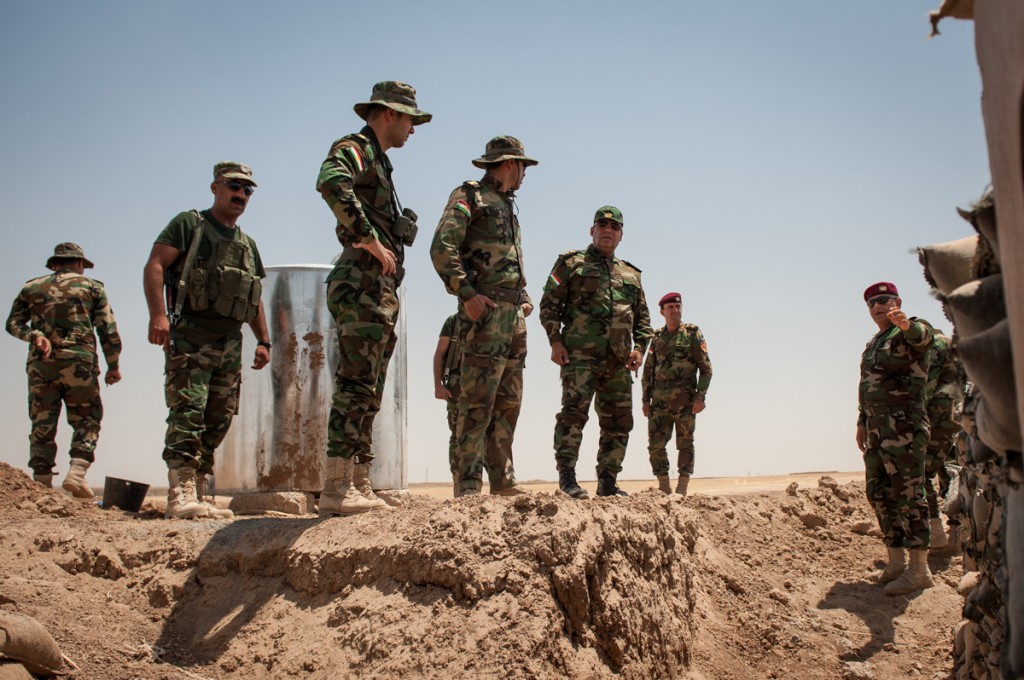
Αξιωματικοί των Peshmerga επιθεωρούν τα χαρακώματα κοντά στο χωριό Qaraqosh. / Peshmerga officers inspect the trenches near the Qaraqosh village.
Another tactic is to visit the villages’ people showing videos with jihadists decapitating people, urging them to leave because they will kill them all. As a Result entire villages are being emptied in panic.
“People here feel safe with the Kurds, “says Colonel Haji, “Since we do not care to take any more land than what we had a long time ago. Of course, these are decisions which are made by the central government of Kurdistan and we are only called to execute them.”
During the last hours battles are taking place in the Qaraqosh and Karemlesh, which are cities with mostly Iraqi Christians, who leave their homes in terror of the vicious Sunni terrorists and the work the Kurdish army and police forces have to perform is very difficult.

